I want to keep this short and simple, but here’s a bit of a backstory first for anyone interested.
Edit: Well, I actually ended up having 13 points on this list, so much from “short and simple”, sorry.
I started doing client work about 5 years ago, after having done mostly affiliate marketing and SEO for myself before that. Affiliate marketing can be very rewarding, but it was missing one crucial element for me, which was that feeling of having done a good job — not much human interaction when most of what you do is based around keeping your niches secret.
So long story short, after growing and flipping a handful of my own and having worked on several different ventures that focused around niche sites, I now co-own a content agency that focuses on SEO-oriented content creation and, you guessed it, niche sites! Of course, I also still own and build/flip my own niche sites.
Over the past 4 years, we’ve built and sold about 100 DFY (Done-For-You) niche websites (well, I counted 95 but am probably missing a couple), several ecommerce/small business websites, and a dozen or so niche sites for our own portfolio. Some of these we didn’t grow much and sold fairly early on, others we’re still growing and have hundreds of thousands of words worth of content on them.
Needless to say, I’ve learned a thing or two building out this many websites and creating large amounts of content for both my own projects and for clients, and I’ve managed to get a fairly good feeling for what a website needs in order to grow in a niche.
I’ve also seen what clients who bought DFY niche sites did with them, especially the ones who made their sites grow and earn effectively.
Here they are, in no particular order of importance, as I find any of them to be as relevant as the next one:
1. Know What You’re Going to Be Doing Before You Go “Outsourcing It”
This is a big one for me, as I’ve been that guy and I’ve also worked with people who were people who were.
Now, there is nothing wrong with outsourcing things. But, there is a BIG difference between people who know what they’re doing outsourcing their work, and people who expect others to make them rich while they outsource their work to them.
Because, in order to effectively outsource, you first need to know what it is you’re doing, and how much it would end up costing you (both money and time-wise) if you did it yourself.Are you going to be buying random backlink packages without ever having tried to build links yourself?
Have you gone through the backlink profiles of any of your competitors and tried to understand what it would take to get those links?
Are you relying on someone else to find you the “lowest competition keywords” without actually understanding what it means for a keyword to be low competition?
When you don’t know what you’re getting and blindly trust someone to do it, chances are, you’re just making the service provider richer and not yourself – as they make money regardless of whether you do.
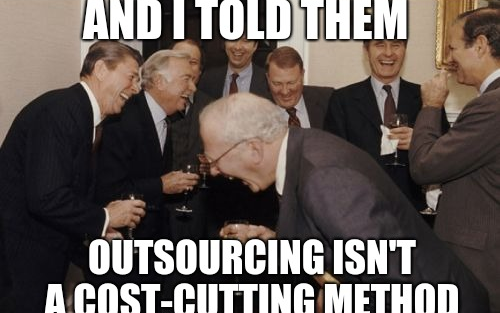
2. Stay Away From Crappy Link Building Services
Nothing against service providers, as I’m one of them myself, but backlink providers are notorious for using automated tools and spun content to create low-quality backlinks.
If you do get these, all you need to do for any apparent gains in rankings to drop is wait for Google to pick up on your link building strategy. This can be with the next update, or as soon as they’re done picking up all those automated links you just bought. A $5 (or any amount for that matter) Fiverr gig isn’t going to cut it long-term, and in my opinion, can only be semi-useful when trying to get other properties like Web 2.0s indexed, if even then.
You need to understand what you’re doing, and find the most cost-efficient provider to do it. Better yet, develop a strategy that works for you by actually doing it yourself – this can be outreach, for example – and THEN create an expert system where you can teach VAs to do the work for you.
It’s easy to fall for marketing tricks and end up spending thousands on re-sold or automated links with little to no results to show for it.=

3. Keywords Matter, Niches Matter More
Many years ago, when I was starting with the Amazon Associates program, I went niche hunting and came across the brilliant idea to build a niche site focused on oregano oil, of all things.I built the site, and the main keyword I was targeting was “buy oregano oil”.This was a terrible idea for several reasons:
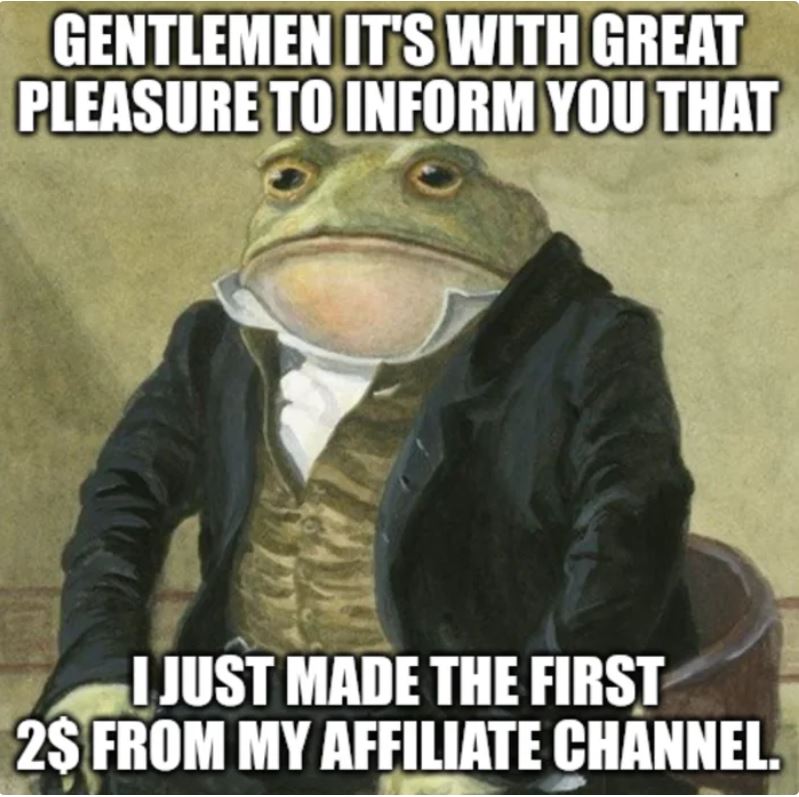
- This was a cheap product to promote, and the commission would be pennies. Commission matters in this business – getting six $16 sales on Amazon will be harder than getting one $96 one, and commission will be the exact same amount. Likewise, making $50 per sale on a $500 product non-Amazon that converts well, as opposed to making $22.5 with Amazon, will make your website worth twice more.
- The main keyword I was targeting was FULL of large ecommerce websites on the first pages of the SERPs. We’re talking the likes of Walmart, iHerb, Costco. I was NOT going to outrank any of these anytime soon.
- I had a “main keyword” and didn’t instead focus on becoming an authority in the niche. There’s no such thing as one magical keyword that will make your website worth gazillions – this could be an entire post of its own.
- I niched down way too much. At least should went with oregano as a broader topic (no, I shouldn’t have)
A couple months and a couple thousand dollars worth of overpriced content and backlinks later, I finally realized this site wasn’t getting anywhere and it was time to pull the plug.
This isn’t even my most embarrassing failed attempt at making it with Amazon, but because of experiences such as these, a lot of what I do now is based on deeply investigating and learning about a niche before I go and start a website in it. This includes finding offers to promote, as well as niche sites that were doing well and got sold for at least mid-five figures. I can guarantee you no niche site focusing on oregano oil ever got sold for that much.
Because here’s the truth: some niches will NOT have a good ROI for the small guy starting a website in them. Yes, Etsy can make a new category page and start getting organic traffic right away, but your starter niche site is far from having the authority theirs has.
4. Learn to Satisfy Search Intent
Look at the SERPs and see what results show up for your keyword.
What’s the search intent behind the keyword? Are you targeting a keyword for which only videos are ranking on page one?
Or one where 7 out of the top 10 results are Pinterest pages?
Are all the search results for product pages of ecommerce stores (what I like to call ecommerce keywords)? Perhaps a brand term for which all that shows up is… that brand’s web properties?
Why do you think that is? Can you satisfy the search intent of the user better than the pages currently ranking on Google for it?
A Simple trick to test for this is seeing whether the pages that are ranking have actual written content on them. If they don’t, that means the search intent for that keyword likely can’t be satisfied with a 2500-word, 4000-word, or even a 6000-word article. An exception here would be obsolete keywords or new trends, as well as low volume underserved keywords for which there isn’t much content out there.

5. Start With the Low-Hanging Fruit
I get one specific type of client myself quite often. Someone who orders 50k words of content for their chosen keywords, only to never rank for anything because everyone and their grandma are targeting “best single serve coffee maker”, oftentimes because a keyword tool told them this was a “low competition keyword”.

Don’t be this guy. Target keywords that a site with your domain authority/rank/trust/power/PageRank/whatever-else-you-wanna-call-it can actually start to rank for.
Keywords with low allintitle results, a.k.a. “The Keyword Golden Ratio” can be great for this, as they’re oftentimes underserved and easy to rank in the first few pages when starting.
That is, unless you’re just using one variation and Google is actually showing another for the keyword (usually when using a “stop word”).This brings us to the next point:
6. Steal Keywords From Other Small/Newer Sites
Who are you trying to compete with? Sorry to break it to you, but unless your website is well-established already, it will be a long time until you can compete with NYTimes’s The Wirecutter.
Big sites will rank for A LOT more keywords per page than smaller ones, but the opportunity here lies in the smaller ones being able to satisfy the search demand for smaller volume keywords better.
Yes, GoodHousekeeping, The NY Times, CNET, and other giant sites will rank for “best espresso machine”, but start targeting “best super automatic espresso machine under 1000” and the SERPs will look a lot different.
That’s because while the former will get a much larger portion of the traffic, they will rarely bother targeting the leftovers the smaller sites are trying to scrap for. This is good news for those starting off, because it means that you can actually start getting a piece.

7. It’s Easier to Increase Conversion Than Traffic
Let’s face it – design only matters once you actually have traffic, as you could have the prettiest website in the world with no one on it. It’s easy to get caught up in details and mess around with CSS all day, and forget what you’re actually trying to achieve – get sales.
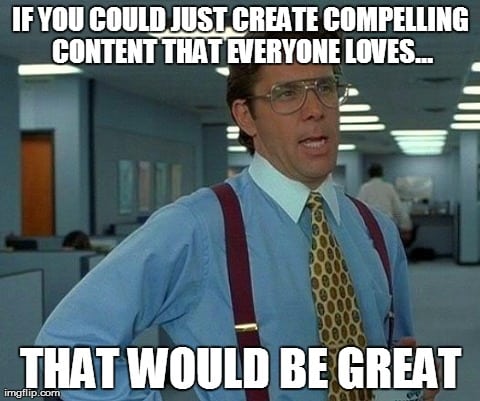
With that being said, building a good, clean template is a one-time thing. This one-time task can end up converting your visitors to buyers 5x better. I learned this the hard way. You can check out one of the great Diggity case studies to help with conversion, and if your conversion with Amazon is not at least 5%, you either:
- Messed up affiliate links
- Are using trash content
- Are using a horrendous template that doesn’t convert.
- Are somehow trying to sell products that don’t actually sell
Or, a combination of some or all of the above.With that said, quality content is just as important as the template you’re using. Yes, you can rank bad content too, but do you think it will convert as well?
8. Consider NOT Using Elementor (and Other Page Builders)

Being a web developer, this is just a personal preference, but every time we have a content client who uses Elementor on their website I go hide in a corner and cry a little.
The unnecessary JS, CSS and div wrappers bloat, on top of one or two Elementor plugins, in my experience, is only worth it if it somehow ends up saving you a significant amount of time.
A clean HTML and CSS content template, with a combination of Gutenberg (not that I actually like that one also, but it’s there to stay), is easier to work with and will actually save you or your VAs a lot of time when posting content, in the long term.
9. Proper Interlinking Is More Important Than Most SEOs Think
This is something I’ve noticed with my own sites a lot. Proper, relevant internal links, seem to matter a lot more than they probably should. Don’t be afraid to have an article link to every other relevant piece of content you have on your website. I personally do 5 to 8 internal links per article.
10. Pay Attention to Trends
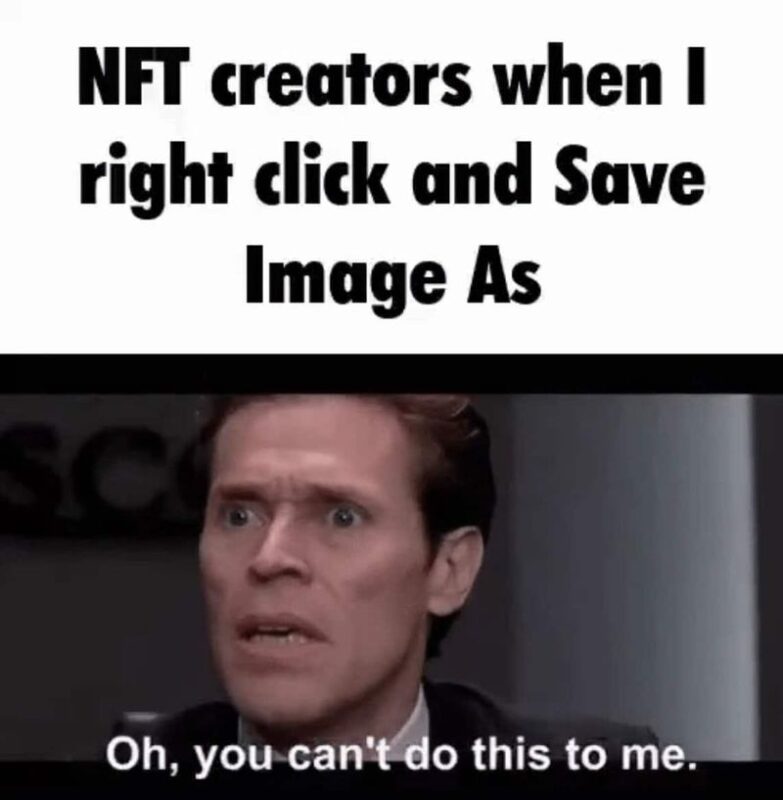
Look for new products, inventions, and everything that gets attention in your niche. Your competition will often take a while to pick up on these, as keyword research tools will generally show keywords only after they’ve been around for several months, and they will severely underestimate the traffic value of these keywords.
Are you reviewing a lot of the models of a certain brand and they just came up with a new line? Put some reviews up and get that traffic while it’s hot.
11. Always Outdo Your Competition’s Content
Want one proven way to satisfy both Google and your users? Actually try to do better than your competitors (a.k.a. The Skyscraper Technique, not necessarily with the outreach part of it), and get their questions answered in a better-researched and clearer manner.
12. Have a Backup Plan
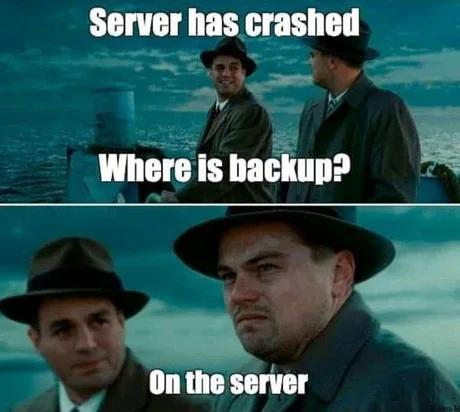
You’ve the old “don’t put all your eggs in one basket” saying thousands of times already.
Well, don’t. Amazon doesn’t care about your commission, and they can lower it any time. Count on having to switch to a different program when they do.
One thing you can do to rely less on Jeff’s good will, is to only target keywords related to products that will be available to buy on places outside of Amazon.
13. Start With the Goal of Leaving; Think Long Term First, and Disregard “Passive Income” Dreams
Well, here I am, just another guy on the Internet telling you how thinking long-term is great!
With affiliate marketing, though, it can literally mean the difference between doing well and doing horrible.
It’s easy to cut corners with bad content and spammy backlinks. This will not benefit you in the long run and will likely end up costing more. The short-term gains you make will just make you cry harder when it comes crumbling down and it’s all Google’s fault because of that last update they did.
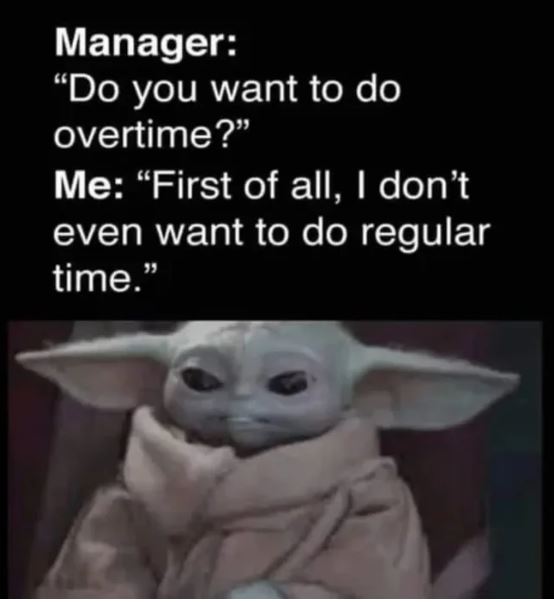
Consider that if you were a buyer interested in your website, would you be comfortable with its history? If the answer is no, you better work on that. Not only will selling a questionable website hurt your multiple, it could actually legitimately hurt the buyer, and with that your reputation.
Also, If you’re looking for “passive income” while you don’t have much experience with building systems that can actually run themselves efficiently, you probably should not start. I’ve been doing this for a very long time, and I’m still not at the point where I can drop things and stop getting bothered with a website entirely, leaving it all to my staff.
Even if you can build such systems, life happens, and issues will need to be dealt with sooner or later. If you can’t be bothered making your own projects work and just want passive income, you should probably just hodl crypto or something instead of getting into SEO, which is an evolving industry.
Consistency is key, and that’s the one main thing that I can certainly say that all of my clients who did well had in common. They got bothered with it, they learned about it, they tried to improve on and do more of what was working for them, and they always thought long-term.
Sadly, that’s only about 20% of new clients, as most of our clients who buy niche sites get enthusiastic at first and start neglecting their sites a few weeks later. Many of our returning content clients keep killing it, though, and consistency is the main reason why they’re doing great while others aren’t.
That’s all folks, if you managed to make it this far, I do appreciate your attention!
Pic related, it’s a photo of Big Jeff leaving for space on a penile implant built with your commission money 


